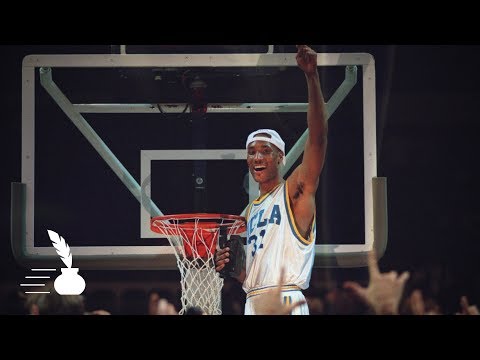What Is an Antitrust Lawsuit in Sports?
Contents
The antitrust laws are a set of laws that are designed to promote competition by preventing businesses from engaging in anti-competitive practices. These laws are relevant in the sports world because they can be used to challenge practices that may be seen as limiting competition.
One recent example of an antitrust lawsuit in the sports world is the case of O’Bannon v. NCAA. This case was filed in 2009 by former UCLA basketball player Ed O’Bannon, and it challenged the NCAA’s rules
Checkout this video:
Introduction
An antitrust lawsuit is a type of civil suit brought by a person or entity alleging that another person or entity has violated antitrust laws. The United States has federal antitrust laws, as well as laws in each state, that are designed to protect consumers and businesses from anticompetitive practices.
Violations of antitrust laws can occur when a person or entity engaging in trade restraints, monopolies, or other anticompetitive practices that harm consumers or businesses. For example, an agreement between two companies not to compete in certain markets may be considered an illegal restraint of trade under antitrust law. In another example, a company that controls a monopoly—a market in which there is only one seller of a product or service—may violate antitrust law if it abuses its power by charging excessively high prices or engaging in other anticompetitive practices.
Antitrust lawsuits are usually brought by private parties, such as consumers or businesses, but sometimes they are brought by the government. If the lawsuit is successful, the court may order the defendant to stop engaging in the unlawful conduct and may award damages to the plaintiff.
What is an antitrust lawsuit?
An antitrust lawsuit is a legal action filed by a person or company who believes that another person or company is violating antitrust laws. Antitrust laws are designed to promote competition by preventing monopolies and other anti-competitive practices.
There are many different antitrust laws, but the most common one is the Sherman Antitrust Act of 1890. This law prohibits any contract, combination, or conspiracy in restraint of trade. It also prohibits any monopoly or attempt to monopolize trade.
The Sherman Act is the primary antitrust law in the United States, but there are also other federal and state laws that prohibition anti-competitive practices.
There have been many antitrust lawsuits filed in the history of professional sports. Some of the most notable cases include:
-The 1998 antitrust lawsuit filed by the city of Oakland against the National Football League (NFL). The city alleged that the NFL’s restrictions on free agency and movement of teams were illegal restraints of trade. The case was settled out of court in 2002.
-The 2006 antitrust lawsuit filed by the players’ association for Major League Baseball (MLB) against MLB and several major league teams. The players alleged that MLB’s restrictions on free agency and player movement were illegal restraints of trade. The case was settled out of court in 2008.
-The 2010 antitrust lawsuit filed by former Major League Soccer (MLS) player Fraser Robertson against MLS and several MLS teams. Robertson alleged that MLS’s restrictions on player movement were illegal restraints of trade. The case is still pending.
Why do antitrust lawsuits happen in sports?
The most common antitrust lawsuits in sports happen when a team or league tries to stop another team or league from competing against them. For example, the National Football League (NFL) was sued by the American Football League (AFL) in 1966. The AFL accused the NFL of trying to monopolize professional football by not allowing AFL teams to sign NFL players. The two leagues eventually merged, but not until 1970.
Another common antitrust lawsuit in sports happens when a league tries to stop a team from moving to another city. For example, the National Basketball Association (NBA) was sued by the city of Seattle in 2007 after the NBA tried to stop the Seattle SuperSonics from moving to Oklahoma City. The city of Seattle eventually won the lawsuit, but the team still had to move.
What are some recent examples of antitrust lawsuits in sports?
In January 2021, a group of college football players filed an antitrust lawsuit against the NCAA, alleging that the organization had illegally restrained their compensation. The players argued that the NCAA had violated federal antitrust law by capping the value of scholarships at $5,250 per year, which they said was well below the actual cost of attendance at most schools.
The lawsuit followed a similar antitrust suit filed by former University of California, Los Angeles (UCLA) basketball player Ed O’Bannon in 2009. O’Bannon’s suit challenged the NCAA’s use of images and likenesses of college athletes without their consent or compensation. In 2014, a federal judge ruled in favor of O’Bannon, ordering the NCAA to pay $50 million to former athletes who had appeared in live television broadcasts or video games.
How do antitrust lawsuits impact the sports industry?
The impact of antitrust lawsuits on the sports industry can be both significant and far-reaching. These lawsuits can result in substantial financial damages for the plaintiffs, as well as significant changes to the way that leagues and teams operate. In some cases, antitrust lawsuits have even led to the disbandment of entire leagues.
Conclusion
In conclusion, antitrust lawsuits in sports are used in order to promote competition and prevent anti-competitive behavior. These lawsuits can be filed by individuals, businesses, or even the government. Antitrust lawsuits can be complex and often take many years to resolve.






